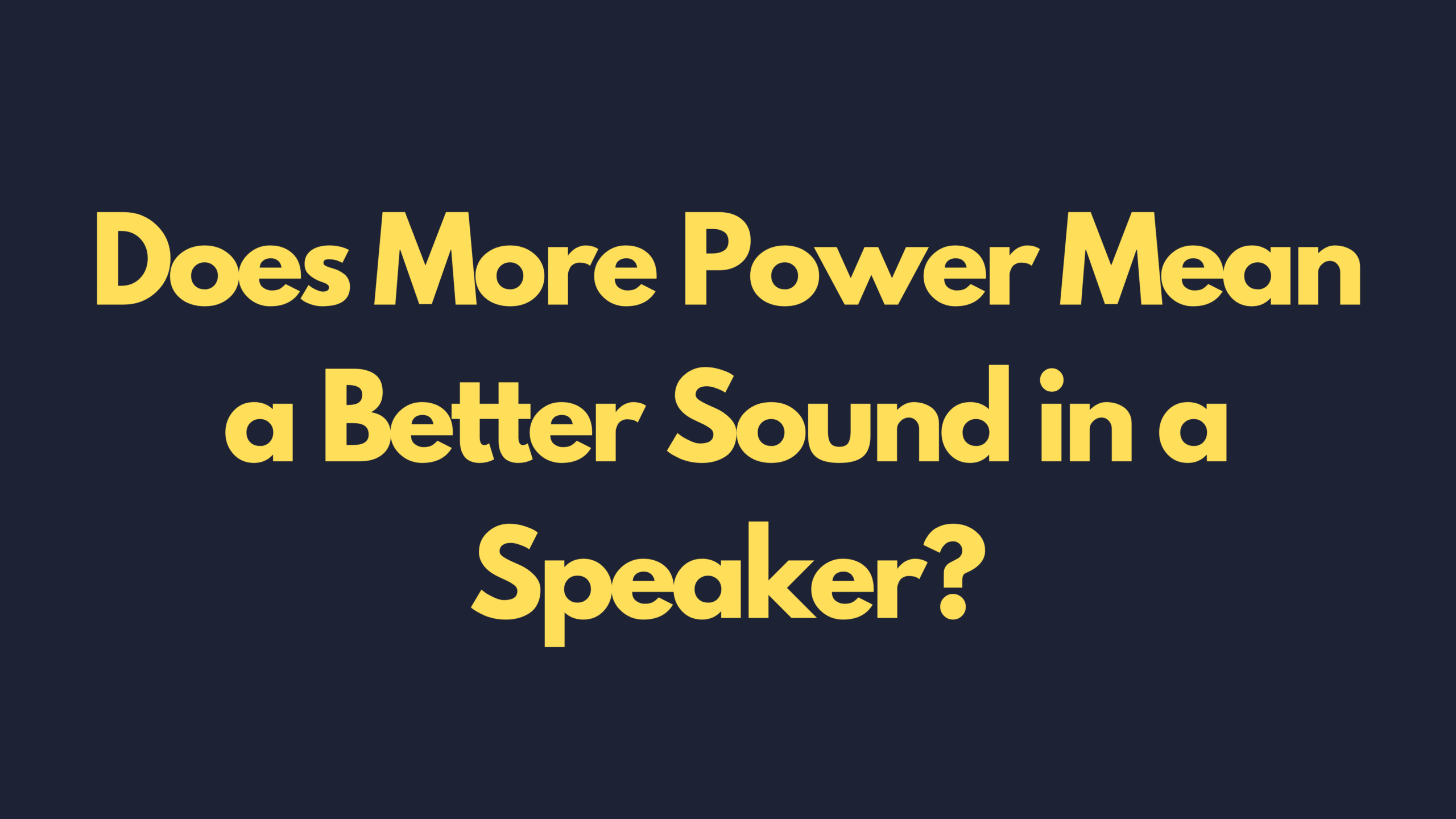Does More Power Mean a Better Sound in a Speaker?

DOES MORE POWER MEAN A BETTER SOUND IN A SPEAKER?
Speakers are a key part of any audio system and greatly impact sound quality. Many people wonder if more power means better sound for speakers. The answer is not simple because sound quality depends on several factors. Today, we’ll look at how speaker power and performance are related, helping you get the best sound from your audio system.
UNDERSTANDING SPEAKER POWER AND PERFORMANCE
Speaker Power Explained
Speaker power is the amount of electrical energy a speaker can handle without getting damaged, its usually measured in watts. This shows the maximum volume a speaker can produce. However, just having a high wattage doesn’t mean better sound quality. Other factors like speaker sensitivity, frequency response, and distortion levels also play a big role in overall sound performance.
1. Sensitivity: This measures how efficiently a speaker turns power into sound. High-sensitivity speakers need less power for the same volume, making them more efficient. Low-sensitivity speakers need more power for the same volume.
2. Frequency Response: This is the range of frequencies a speaker can accurately reproduce. A wide and flat frequency response means all sounds, from deep bass to high treble, are reproduced accurately.
3. Distortion Levels: Distortion happens when a speaker can’t accurately reproduce the input signal, leading to sound changes or unwanted noise. Lower distortion levels mean cleaner and more accurate sound reproduction.
THE ROLE OF POWER IN SOUND PRODUCTION
Power and Volume
When discussing speaker performance, power is a critical factor. The power a speaker receives from an amplifier affects its ability to produce sound. Generally, more power allows a speaker to produce higher volumes without distortion. However, simply increasing power does not always result in better sound quality. Overpowering a speaker can damage its drivers and lead to distorted sound.
Power and Sound Quality
It’s important to strike a balance between power and other factors such as sensitivity, frequency response, and distortion. While high power can improve volume levels, it does not necessarily enhance sound quality. A well-matched amplifier and speaker combination, considering power handling capacity and sensitivity, is essential for optimal sound performance.
FREQUENTLY ASKED QUESTIONS
What is the Relationship Between Amplifier Watts and Speaker Performance?
The wattage of an amplifier determines how much power it can deliver to the speakers. Matching the amplifier’s power output with the speaker’s power handling capacity is crucial to avoid weak or distorted sound from underpowering and potential damage from overpowering.
Is it Better to Overpower or Underpower Speakers?
Neither overpowering nor underpowering speakers is ideal. Overpowering can damage the speakers, while underpowering can result in weak and distorted sound. Matching the amplifier’s power output with the speaker’s power handling capacity is the best approach.
What is a Good Output Power for Speakers?
The ideal output power depends on factors like room size, speaker sensitivity, and listening preferences. Generally, a power output of 50 to 100 watts is sufficient for most home audio setups, but larger rooms or speakers with low sensitivity may require more power.
Does a Higher Wattage Speaker Mean a Louder Sound?
Not necessarily. Other factors such as speaker sensitivity, room size, and amplifier power output play significant roles in determining volume. A higher-wattage speaker can handle more power, but it doesn’t automatically translate to louder sound without considering these factors.
How Can I Improve the Sound Quality of My Speakers?
To enhance speaker sound quality, ensure proper placement and positioning, use high-quality audio cables, and employ equalizer or tone controls to fine-tune the sound to your preferences. Additionally, manage power levels and avoid pushing speakers to their limits.
In summary, although more power can make your speakers louder, it doesn’t always mean better sound quality. Sensitivity, frequency response, and distortion levels also play crucial roles.







